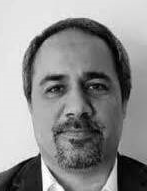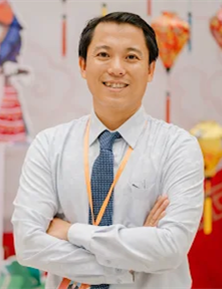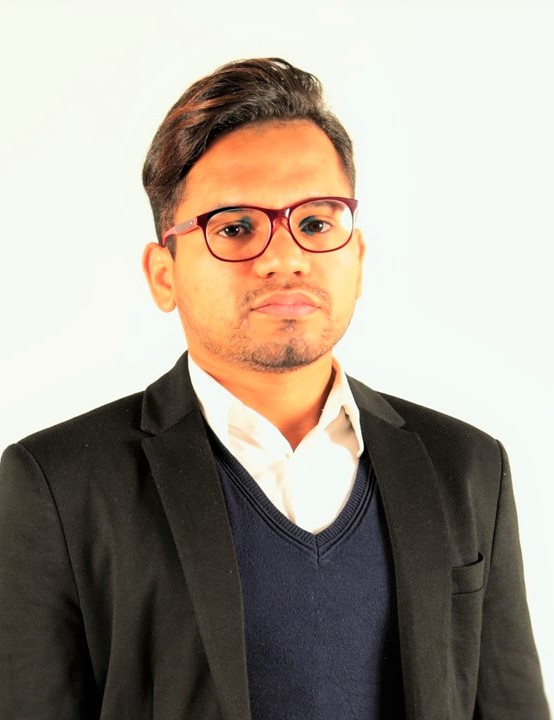Keynote Speakers

Professor Matthias Fuchs
Professor of Business Administration,
faculty of Economics and Management,
Free University of Bolzano, Italy.
Director of the Competence Centre for Sustainable Tourism,
Brunico, Italy
Matthias Fuchs, Ph.D., was tenured in Business Administration at University of Innsbruck, Austria in 2003. Subsequently, he was the director of the e-Tourism Competence Center Austria located at Innsbruck, Austria. From 2008 until June 2024, Matthias worked as a Full Professor of Tourism Management & Economics at Mid Sweden University, Östersund, Sweden. Since July 2024, Matthias holds the position of a Full Professor of Business Administration at the faculty of Economics and Management at Free University of Bolzano, Italy. He is also the director of the Competence Centre for Sustainable Tourism, located at Brunico, Italy. Matthias’ main research interests include digital transformation in the tourism domain with a focus on big data and business intelligence applications, such as topic detection and sentiment analysis based on tourists’ online feedback. Moreover, Matthias’ research interests comprise network analyses and input output methodologies for conducting socio-economic impact analysis in tourism. Matthias also steered relevant studies in the field of customer-based destination brand equity. Finally, Matthias developed critical epistemologies grounded on Buddhist philosophy to foster more just and regenerative types of tourism (https://doi.org/10.1016/j.annals.2023.103688). Recently, Matthias’ research interests also cover the assessment of tourism’s contribution to sustain regional circular economies. Prof. Matthias Fuchs is Associate Editor of the Journal of Information Technology & Tourism. Matthias is also the co-editor of the recently published Springer Handbook of e-Tourism (https://link.springer.com/referencework/10.1007/978-3-030-48652-5). Finally, Prof. Matthias Fuchs serves the editorial board of the Journal of Travel Research, Annals of Tourism Research, Tourism Analysis, and the Journal of Hospitality & Tourism Management.

Professor Behzad Behdani
Professor in Supply Chain and Operations Management
USN School of Business, University of South-Eastern Norway
Behzad Behdani is a Professor in Supply Chain and
Operations Management at the Department of Business, Strategy, and Political
Science, University of South-Eastern Norway. He also leads Collaborative
Innovation, Societal Transformation, and Operations Management (CISOM) at
the USN School of Business. Behzad has done significant research on some
ground-breaking aspects of operations and supply chain management, including
supply chain analytics and operations management at early-stage innovative
companies (the link between innovation/technology management and operations
management) and global intermodal logistics. His current research is focused
on smart manufacturing and logistics, particularly how digital technologies
help transform the existing business models in the logistics sector.
Behzad’s research also deals with how we can embed the UN Sustainable
Development Goals in the design and operations of global logistics systems.
Behzad’s research has been published in leading academic journals in the
field of supply chain and logistics management, including IJPE, IJPR, CAIE,
TRE, and Transport Reviews, among others. He has served on the editorial
board of the World Review of Intermodal Transportation Research and
Strategic Planning for Energy and the Environment Journal. He has been
involved in organizing several conferences, including International
Conference on Computational Logistics, and served on the guest editorial
team of several special issues.
Invited SpeakerS

Associate Professor
Eric Benhamou
Head of R&D and Machine Learning, AI for
Alpha; Department of Mathematics & Information Technologies,
Université Paris-Dauphine, PSL, France
A graduate of École Polytechnique and ENSAE Paris, Éric
Benhamou holds three doctorates—in Economics (London School of Economics),
Mathematics (Université Paris-Est École des Ponts et Chaussées) and Computer
Science (Paris-Dauphine). He began his career at Goldman Sachs in
quantitative finance, then headed Natixis’s quantitative research team,
developing advanced derivatives-pricing models. In 2007, he co-founded
Pricing Partners, a fintech pioneer in independent OTC derivatives
valuation, and lately in 2020 co-created AI for Alpha, where he oversees
R&D, building “decoding” algorithms that replicate hedge-fund and
private-equity strategies in transparent, liquid formats.
At Paris-Dauphine, he teaches machine learning, deep reinforcement learning,
and quantitative finance. His research focuses on AI-driven portfolio
allocation in non-stationary markets, replication of illiquid investment
strategies, and sentiment-based signal extraction for trading and risk
management. Prof. Benhamou has authored over 100 papers in leading journals
and conferences, spoken at major industry forums (including the MathFinance
Conference, ECML PKDD, and many leading ML conferences), and serves on
editorial boards for several machine-learning-in-finance venues. He is
currently ranked 4th among more than 30,000 authors on SSRN by download
volume.

Professor Larisa Ivascu
Politehnica University of Timisoara,
Romania
Dr. Larisa IVASCU (Ph.D. in Engineering and Management; MBA; B.S. in Software Engineering) is a vice-rector for financial policies and entrepreneurship at Politehnica University of Timisoara. She is a full professor at the Faculty of Management in Production and Transportation, Department of Management, having more than 20 years of experience in programming, teaching and research. Professor Ivascu is the director of Research Center for Engineering and Management, the president of the scientific committee of the Academy of Political Leadership, and vice-president of the Society for Ergonomics and Work Environment Management. Larisa was the head of the Entrepreneurship Office of Politehnica University of Timisoara. She has extensive academic work: she has published 11 books, and 15 chapters in national and international books, coordinated the editing of 11 books at internationally recognized publishing houses, and written over 320 academic research studies or articles, being also part of international research bodies. Dr. Larisa is a guest editor of important journals, a keynote speaker to various international and national events, part of the national and international entrepreneur and academic projects and visiting professor at prestigious universities.
